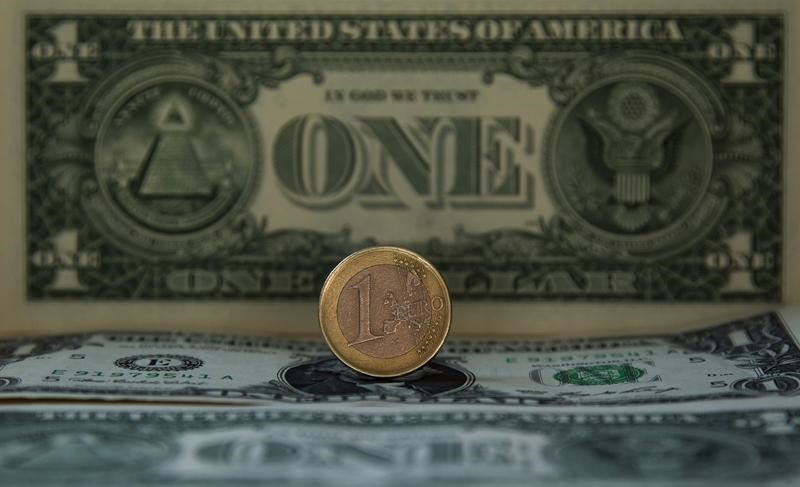Investing.com - The dollar fell to its lowest level in three weeks on Wednesday, pressured lower by a stronger euro and diminishing expectations that Republicans will be able to push through a tax overhaul this year.
The U.S. dollar index, which measures the greenback’s strength against a trade-weighted basket of six major currencies, was down 0.26% to 93.48 by 03:45 AM ET (08:45 AM GMT), its lowest level since October 26.
Demand for the euro continued to be underpinned after solid euro zone growth data on Tuesday offered further evidence that the region’s economic recovery remains on track, supporting the European Central Bank's move to begin reducing its bond-buying program.
Last month the ECB said it would keep its bond buying program in place late into next year but reduce the size of its monthly purchases, a policy shift signaling it is on track to eventually raising interest rates.
EUR/USD was up 0.27% at 1.1829, while EUR/GBP was at one-month highs of 0.8975.
The dollar came under additional pressure after Senate Republicans on Tuesday indicated that their tax overhaul plan would be linked to the repeal of a key component of Obamacare, complicating efforts to pass the bill.
Uncertainties over tax measures have hit the dollar in recent sessions, sending it down by more than 1% since last week.
The dollar was lower against the yen, with USD/JPY falling 0.51% to 112.86 after pulling back from a high of 113.90 the previous day.
The yen showed little reaction to Japanese data showing that the economy grew faster than expected in the third quarter thanks to strong exports, posting the longest period of uninterrupted growth in more than a decade.
Investors were looking ahead to U.S. inflation data for October later Wednesday, which was expected to show just a modest increase in consumer prices.
Sterling pushed higher, with GBP/USD rising 0.14% to 1.3182 ahead of the latest UK jobs report later in the day.
Meanwhile, the Australian dollar was lower against its U.S. counterpart, with AUD/USD last near four-month trough of 0.7587 after weak domestic wage data dampened the outlook for inflation and thus interest rates.
The New Zealand dollar was little changed, with NZD/USD at 0.6876, having hit a two-week low of 0.6862 overnight.
